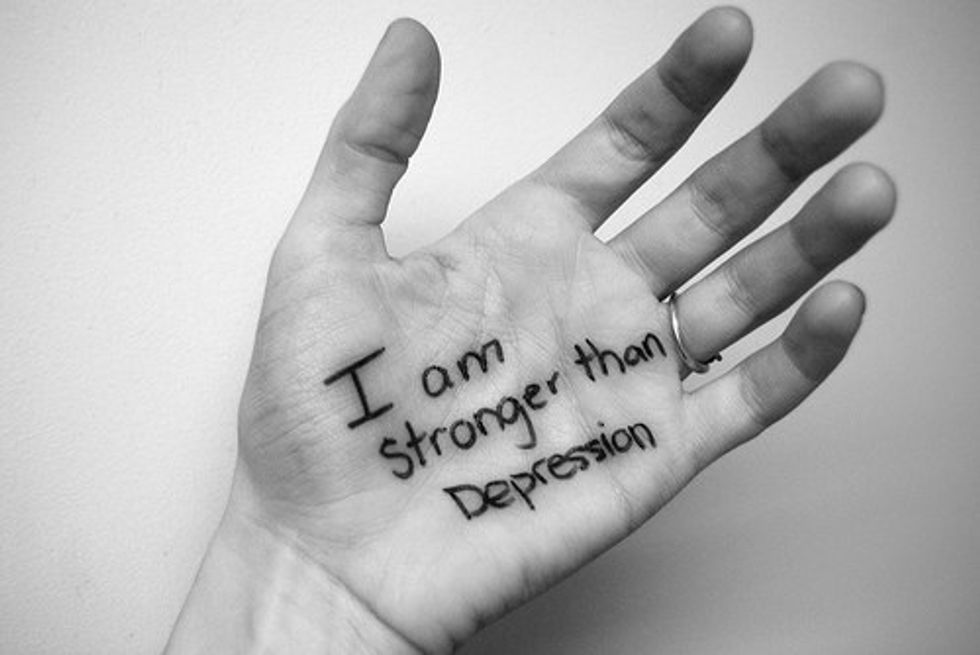There are many names for the different types of depression. Depression
often co-exists with other mental or physical illnesses. Substance
abuse, anxiety disorders and eating disorders are particularly common
conditions that may be worsened by depression, and it is important that
the depression and each co-occurring illness be appropriately diagnosed
and treated. Substance use disorders (abuse or dependence) also
frequently co-occur with depression.
Depression may have a slightly different set of symptoms when a child or teen has it. Children and adolescents may be more likely to have symptoms like unexplained aches and pains, irritability and social withdrawal. On the other hand, symptoms more likely to affect adults include slowed speech and activity, sleeping too much and believing things that aren’t true (delusions).
Depression is not a normal part of growing older. Older adults may be
going through changes such as children moving away, illness, moving to
assisted living facilities or the death of loved ones. All of these
things can cause feelings of sadness or grief. But when feelings of
sadness last for a significant length of time and keep older adults from
enjoying life the way they used to, it may be a sign that they should
seek treatment.
Episodes of depression often follow stressful events such as marital
problems or the death of a loved one. The exact causes of depression
still are not clear. What we do know is that both genetics and a
stressful environment, or life situation, contribute to its cause or
sudden onset.
Major depressive disorder, or major depression, is characterized by a
combination of symptoms that interfere with a person's ability to work,
sleep, study, eat, and enjoy once-pleasurable activities.
Some of the signs and symptoms according to the Diagnostic & Statistical Manual of Mental Disorders 5, include the following:
- Prolonged sadness or unexplained crying spells
- Significant changes in appetite and sleep patterns
- Irritability, anger, worry, agitation, anxiety
- Pessimism, indifference
- Loss of energy, persistent lethargy
- Feelings of guilt, worthlessness
- Inability to concentrate, indecisiveness
- Inability to take pleasure in former interests, social withdrawal
- Unexplained aches and pains
- Recurring thoughts of death or suicide
How can we fight depression? We can do this by changing the way we think and see ourselves and the world around us. Speaking to a therapist or anyone in the mental health community can also provide us with the tools and guidance that we need.
People who volunteer or simply care for others on a consistent basis
seem to be happier and less depressed. Although “caring” can involve
volunteering as part of an organized group or club, it can be as simple
as reaching out to a colleague or classmate who looks lonely or is
struggling with an issue.
Regular exercise has been associated with improved mental well-being and a lower incidence of depression.
The Cochrane Review (the most influential medical review of its kind in
the world) has produced a landmark analysis of 23 studies on exercise
and depression. One of the major conclusions was that exercise had a
“large clinical impact" on depression. Many studies are proving the
ancient adage, "sound body, sound mind," including the recent discovery
of a "gut-brain axis," and a possible link between excessive sugar
consumption and depression.
Spirituality and prayer also provide people with an opportunity to
engage in a meditative act. Meditation has been shown to have a strong
link with well-being because it calms the body, reduces stress and
anxiety, and also supports positive thinking. The cultivation of “sacred
moments” in daily life, whether through journal-writing or daily
spiritual exercises, has been associated with reduced levels of stress
and an increase in psychological well-being. Finally, both spirituality
and organized religion can help provide people with perspective, hope,
and a deeper sense of meaning. By believing in something greater than
themselves, it may help them stay positive in times of sadness, and
foster resilience in its role as a coping strategy.
Positive Psychology is a subset within the broader field we call the
Science of Happiness, which extends to the natural as well as social
sciences. For example, Positive Psychology is largely focused on the
study of positive emotions and "signature strengths," yet the Science of
Happiness extends, for example, to such areas as exercise and
psychological well-being as well as the impact of social media on
happiness in human relationships.
























